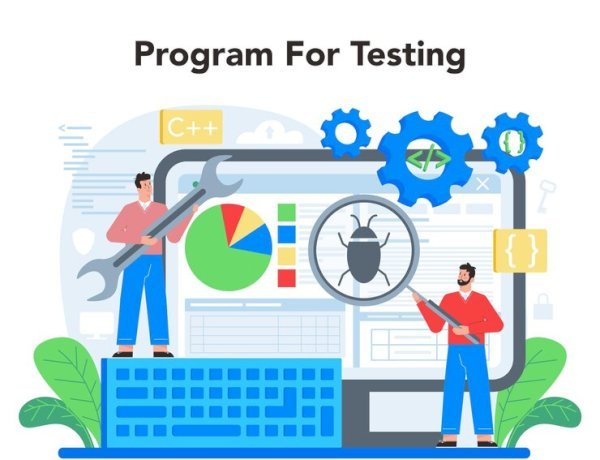The CEO of a Small Business: Secrets to Leading and Succeeding in 2025
Discover the key responsibilities of a CEO of a small business in 2025. Learn how to lead effectively, manage finances, embrace digital transformation, and achieve work-life balance.

Running a small business is both rewarding and challenging, and being the CEO of one comes with unique responsibilities. Whether you're a start-up founder or managing an established company, understanding the role of a CEO is essential for success. In 2025, small business CEOs face new opportunities and obstacles, from navigating economic uncertainties to leveraging digital tools for growth. This article dives into what it takes to be a successful CEO of a small business, offering insights into leadership, strategy, and staying competitive.
The Role of a Small Business CEO

The CEO of a small business sets vision, owns results, and bridges strategy with execution. As the CEO of a small company, you’ll prioritize cash flow, culture, and customers while wearing multiple hats.
The CEO of a small business wears many hats. Unlike large corporations where duties are divided among specialized roles, a small business CEO often takes on multiple responsibilities. From setting the overall direction of the company to handling day-to-day operations, this role requires flexibility and adaptability. CEOs need to be both visionary leaders and practical managers. Balancing strategic thinking with operational tasks is key to maintaining the health and growth of the business.
Key Responsibilities
-
Strategic Vision: Defining the long-term goals and mission of the business.
-
Operational Oversight: Managing daily operations to ensure smooth functioning.
-
Financial Management: Keeping a close eye on budgets, cash flow, and investments.
-
Team Leadership: Inspiring and guiding employees while fostering a positive workplace culture.
-
Customer Relationships: Engaging with customers to build trust and loyalty.
-
As the CEO small business leader, you’ll align quarterly goals to long-term vision.
-
A business CEO also ensures decisions ladder up to a clear mission.
Leadership Styles in Small Business

Different leadership styles can make a significant difference in the success of a small business. For the CEO of business environments with lean teams, adapting your style to context is critical. Some CEOs adopt a hands-on approach, closely managing every aspect of the company, while others focus on empowering their teams and delegating tasks. Knowing when to step in and when to let go is a vital skill.
Popular Leadership Styles in 2025
-
Transformational Leadership: Inspiring employees with a clear vision and encouraging innovation.
-
Servant Leadership: Prioritizing the needs of employees and customers to create a collaborative environment.
-
Situational Leadership: Adapting your leadership style based on specific challenges and team dynamics.
Strategic Planning for Small Business Success

Strategic planning is a crucial part of any CEO’s responsibilities. For a small business, this means setting long-term goals while staying agile enough to respond to market changes. In 2025, small business CEOs must be particularly aware of economic trends, technological advancements, and customer behavior shifts. Whether you’re the CEO of a business pivoting to new markets or defending share, planning must stay agile.
Actionable Tips for Strategic Planning
-
Conduct regular SWOT analyses to identify strengths, weaknesses, opportunities, and threats.
-
Stay updated on industry trends through reports and networking events.
-
Establish short-term and long-term goals, ensuring they align with your mission.
-
Reassess strategies quarterly to adapt to market changes.
Read More: How to Start an Import-Export Business in the UK (2025 Guide)
Financial Management: A CEO’s Responsibility

One of the biggest challenges for small business CEOs is managing finances. Unlike larger companies, small businesses often have limited resources, making effective financial management critical. CEOs need to keep a close eye on cash flow, budgeting, and investment decisions. For any CEO small business, disciplined budgeting and cash forecasting protect runway.
Top Financial Management Practices
-
Automate Financial Processes: Use accounting tools like QuickBooks or Xero for accurate tracking.
-
Diversify Revenue Streams: Reduce dependency on a single income source.
-
Monitor Key Metrics: Track profit margins, operational costs, and customer acquisition costs.
-
Prepare for Uncertainties: Build an emergency fund to mitigate risks like inflation or rising interest rates.
Navigating Digital Transformation

In today’s digital age, small business CEOs must embrace technology to stay competitive. From setting up an online presence to leveraging digital marketing and e-commerce platforms, digital transformation provides new opportunities for growth. A modern CEO of small company relies on digital systems to scale workflows without bloating headcount.
Key Digital Tools for 2025
-
Customer Relationship Management (CRM): Tools like HubSpot for personalized customer engagement.
-
Artificial Intelligence (AI): Platforms for automating repetitive tasks, such as ChatGPT for customer service.
-
E-Commerce Solutions: Shopify or WooCommerce for seamless online sales.
-
Social Media Marketing: Utilize TikTok and Instagram for targeted advertising.
Building and Maintaining Customer Relationships

Customer relationships are the lifeblood of any small business. As CEO, maintaining and nurturing these relationships should be a top priority. Understanding customer needs, addressing concerns, and delivering exceptional service are essential for customer retention and word-of-mouth marketing. For a CEO small company, staying close to customers keeps product-market fit tight.
Strategies for Customer Retention
-
Personalize interactions with customers through data insights.
-
Encourage feedback and act on suggestions.
-
Offer loyalty programs or exclusive deals.
-
Use social media platforms to engage and connect with your audience.
The Importance of Networking and Partnerships

Networking is crucial for small business growth. CEOs must actively seek out partnerships, collaborations, and networking opportunities to expand their reach. A CEO of a business can accelerate growth through alliances, co-marketing, and channel partners. Building a strong network can open doors to new opportunities, such as joint ventures, funding, or mentorship.
How to Network Effectively in 2025
-
Attend industry-specific events and expos.
-
Leverage LinkedIn for professional connections.
-
Join online communities or forums related to your industry.
-
Collaborate with local businesses for cross-promotional activities.
Read More: The 7 Role of Artificial Intelligence in Business
Work-Life Balance: A Challenge for Small Business CEOs

Running a small business can be all-consuming, making work-life balance a challenge for CEOs. However, neglecting personal well-being can lead to burnout and negatively impact the business.
Practical Tips for Work-Life Balance
-
Schedule dedicated time for personal activities.
-
Delegate tasks to trusted team members.
-
Set clear boundaries for work hours.
-
Incorporate mindfulness or exercise into your routine.
Future Trends and Opportunities for Small Business CEOs

-
Sustainability Initiatives: Adopting eco-friendly practices to attract environmentally conscious customers.
-
AI Integration: Leveraging AI for smarter decision-making and automation.
-
Global Expansion: Exploring international markets through digital platforms.
-
Hybrid Work Models: Balancing in-office and remote work to improve employee satisfaction.
Conclusion
Being the CEO of a small business is no small feat. It requires a blend of leadership, strategic planning, financial acumen, and adaptability. As we move into 2025, small business CEOs will continue to face new challenges and opportunities. By staying informed, embracing technology, and maintaining strong customer and business relationships, small business CEOs can lead their companies to success. Remember, the journey of a small business CEO is filled with learning experiences that shape both the leader and the business.
FAQs
-
What does a CEO do in a small business?
The CEO of small business sets strategy, manages finances and operations, hires and develops the team, and owns results. -
How can a small business CEO improve leadership skills?
Improving leadership skills can involve continuous learning, seeking mentorship, understanding team dynamics, and being adaptable to different situations. -
Why is financial management crucial for small business CEOs?
Financial management is crucial because small businesses often operate with limited resources. CEOs must ensure that cash flow is steady, expenses are managed, and investments are made wisely to avoid financial pitfalls. -
How important is digital transformation for small business success?
Digital transformation is essential for staying competitive. Embracing digital tools, such as e-commerce, social media, and automation, can help small businesses reach new customers and streamline operations. -
What strategies can small business CEOs use to maintain work-life balance?
Small business CEOs can maintain work-life balance by setting boundaries, scheduling regular breaks, delegating tasks, and prioritizing their mental and physical well-being.




























